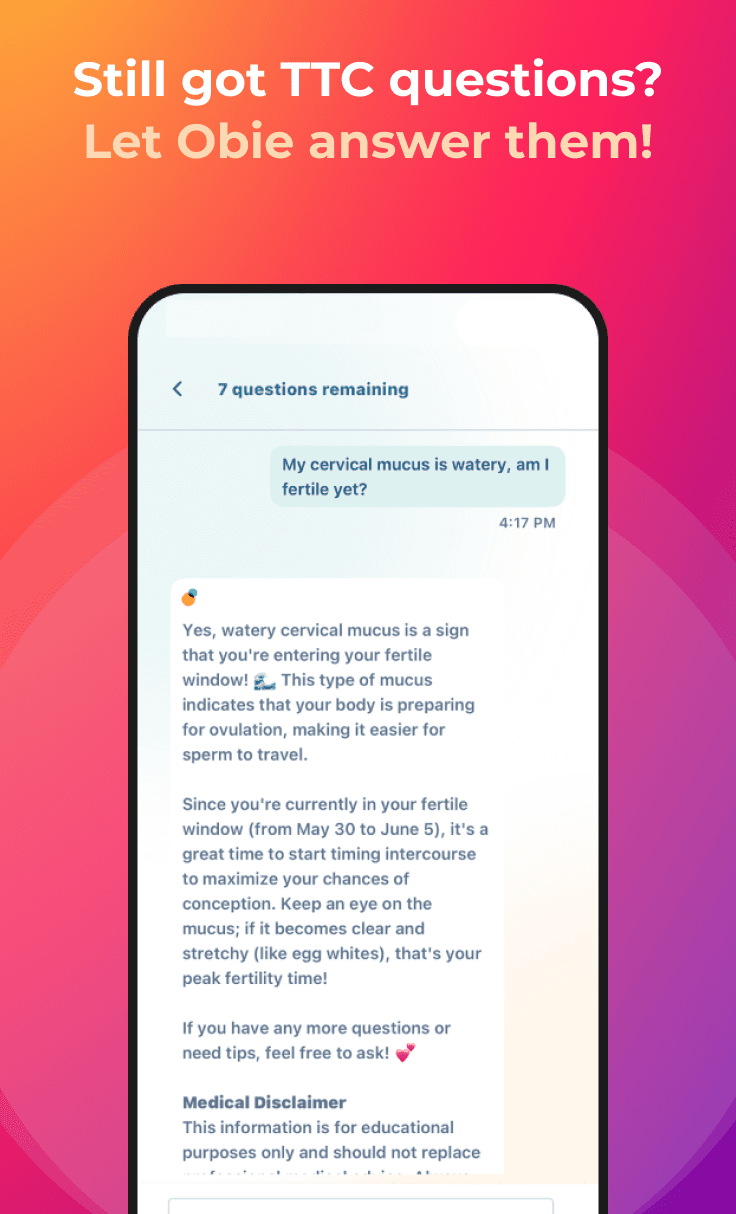Why do I have no menstrual period (Amenorrhea) ?
Menstrual Cycle
Obie Editorial Team

Amenorrhea is when you have missed your regular menstrual period, your menstrual bleeding. If you previously had a menstrual period, then you have 'secondary amenorrhea,' and if you have never had a period, then it's called 'primary amenorrhea.'
If pregnancy is possible, then a pregnancy test should be done first. If the pregnancy test is repeatedly negative then you are not pregnant. In most cases of not having a menstrual period without being pregnant the reason for not getting a period is not ovulating (no ovulation = anovulation).
Possible causes of amenorrhea
The following are potential causes of amenorrhea:
- Anovulation (no ovulation). Women who do not ovulate do not usually get a regular menstrual period, or they have just spotting.
- Pregnancy (the major cause of anovulation)
- Menopause. During menopause, women stop getting their period because they have stopped ovulating.
- Breastfeeding can prevent ovulation and lead to not having a period.
- Premature ovarian failure or premature menopause, (menopause before a certain age, usually before the age of 40) also known as hypergonadotropic hypoestrogenic anovulation (approximately 10% of cases)
- Vaginal problems like imperforate hymen
- Uterine abnormalities like scarring inside the uterus (Asherman syndrome).
- Polycystic Ovarian Syndrome (PCOS), which accounts for approximately 70% of ovulatory dysfunction cases.
- Polycystic ovary syndrome (PCOS)
- Prescription medication can also cause missed periods
- Hypothyroidism (not enough thyroid hormone),
- Certain medications,
- Too high or too low weights,
- Too much exercise
- Hypothalamic amenorrhea, also known as hypogonadotropic hypogonadism (approximately 10% of cases)
- Hyperprolactinemia (approximately 10% of cases)
Diagnosis and treatment for missed periods
When having missed periods, and there is a chance that you could be pregnant, take a home pregnancy test. If the pregnancy test is negative, test again within a week. A second negative test could mean there is a problem other than pregnancy causing the cessation of your menstrual cycle and professional help should be sought. Some women normally have only a few menstrual periods a year and are completely healthy while others have two or more short periods a month.
There are three distinct parts of the body that contribute to ovulation problems: the hypothalamus, the pituitary gland, and the ovaries.
Medical reasons for amenorrhea and not ovulating
1. Hypothalamic problems (GnRH pulses FSH and LH)
- Polycystic ovary syndrome
- Prepubertal
- Strenuous Exercise
- Certain Diets
- Stress
- Low BMI, anorexia, sudden weight loss
- Chronic or severe illnesses
- Some drugs (e.g., opiates)
2. Pituitary causes
- Hypothyroidism
- Hyperthyroidism
- Too much Prolactin. Prolactin may be increased with certain drugs (e.g. major tranquilizers). Any pressure on the gland such as certain tumors (prolactinomas) can also cause a rise in the prolactin hormone (hyperprolactinemia), which in turn can cause problems with ovulation.
3. Ovary
- Premature ovarian failure (POF)
- Ovarian failure = menopause
- Primary ovarian failure (often a chromosomal problem)
- Secondary ovarian failure (cause often unknown, but can be due to an autoimmune disorder or caused by chemotherapy, radiotherapy, or surgery. The FSH is usually increased as there is no estrogen or inhibin feedback








